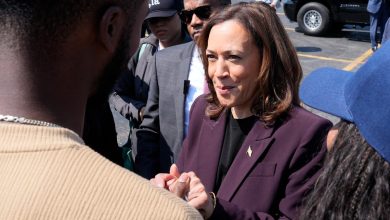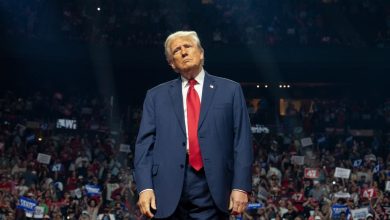Harris vs Trump: How the presidential candidates compare on economic policy
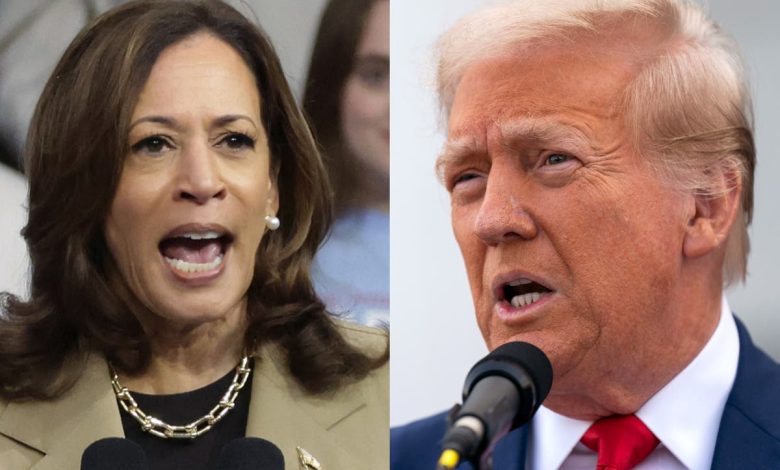
Both Donald Trump and Kamala Harris want to claim the mantle as the greatest champion of the working class.
At the center of their pitches to those voters is economic policies. This week, the Vice President rolled out her plan to lower costs for American families including tax credits for children, price control efforts, and housing assistance. Many of the proposals aren’t strictly new but instead expand on the efforts of President Joe Biden.
One of the main cudgels that Trump has used to bash the Biden administration has been the high rate of inflation. Trump says that he will bring down prices when he’s back in the White House – but it remains unclear how he would do that, as a president can’t bring down prices on their own. And while prices remain high, inflation has been cooling in recent weeks.
Here’s a look at Trump and Harris’s economic plans.
Harris’s plan
Price gouging
The Harris campaign announced on Friday that part of their economic focus will be on lowering grocery costs, noting that stores have seen their highest profits in two decades.
Part of that plan will be to advance a federal ban on price gouging on food and groceries, and put in place rules to stop big corporations from getting “excessive profits” by “unfairly” exploiting consumers.
The campaign added that they would also “secure new authority” for the Federal Trade Commission and state attorneys general.
Removing taxes on tips
Both Harris and Trump have pledged to eliminate federal taxes on tips. Trump was the first to mention the idea in June in Las Vegas, Nevada. He has since criticized Harris for copying him.
Nevada is a key swing state with many service and hospitality workers.
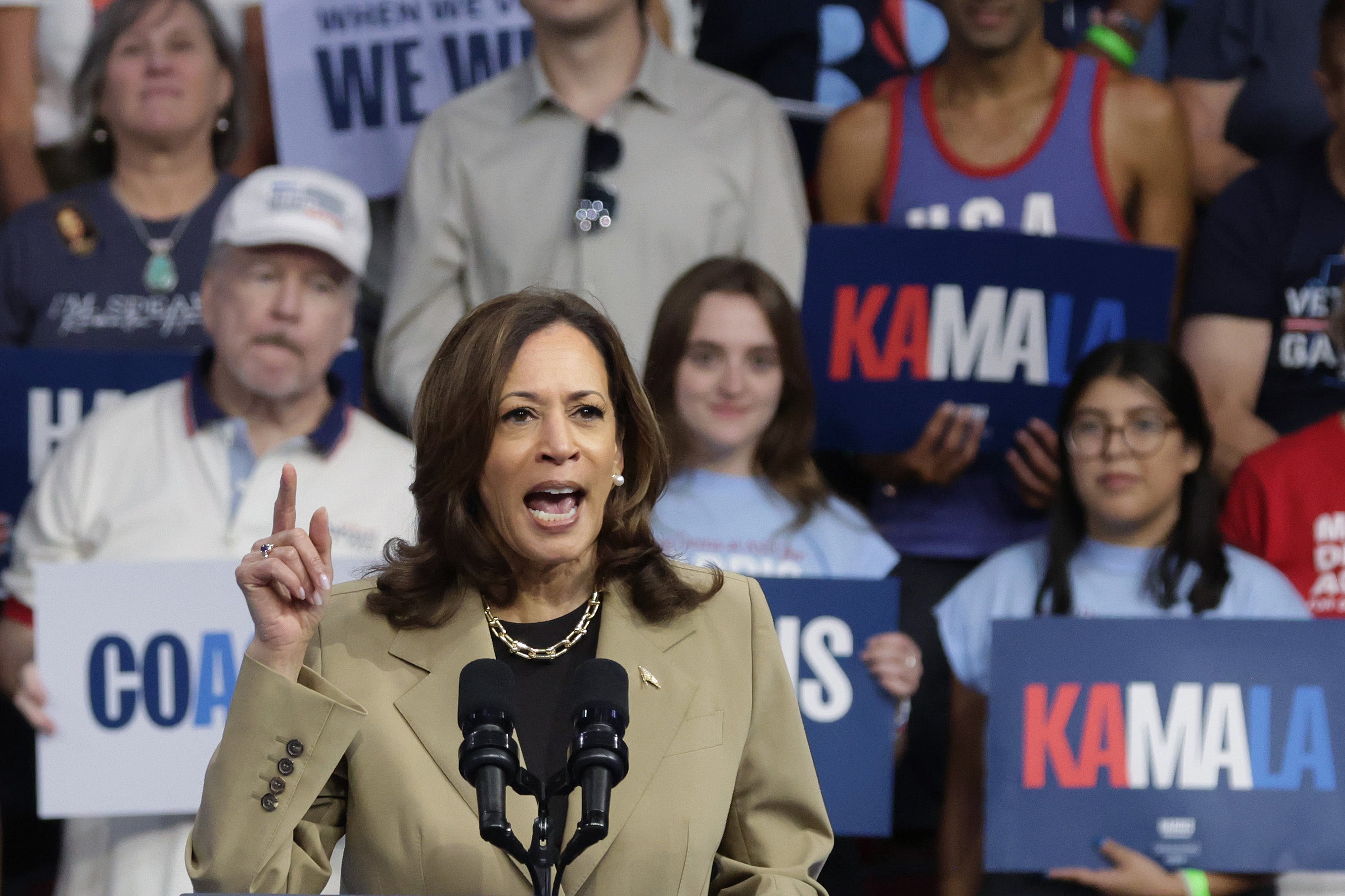
While Trump has suggested removing both federal income and payroll taxes on tips, under Harris’s plan, tips would still be subject to payroll taxes.
Helping first-time homebuyers
The Harris campaign is promising up to $25,000 in assistance with down payments for first-time homebuyers who have paid their rent on time for two years, adding that there would be “more generous support for first-generation homeowners.”
Lowering rent
The campaign announced that it would be taking on large landlords by stopping Wall Street from buying up and marking up homes “in bulk”. Harris also plans to stop rent-setting data firms from price fixing – arguing that “corporate” landlords are colluding to hike rents across the US.
Building new homes
Harris is calling for the construction of three million new housing units in the next four years, both for renting and buying. It will require removing restrictions limiting what new housing can be built “including on the state and local levels.”
Lowering costs of prescription drugs
The vice president’s campaign announced that part of the plan is to limit the cost of insulin to $35 and cap out-of-pocket expenses for prescription drugs to $2,000 for “everyone, not just seniors.”
Eliminating medical debt
The campaign said they would work with states to cancel medical debt for millions and to “help them avoid accumulating such debt in the future.”
Child tax credit
Harris is proposing a new child tax credit of $6,000 for families with newborn children in the first year of their life.
The campaign also said it plans on fighting to “restore” the expanded child tax credit from the American Rescue Plan, which would provide $3,600 per child to the “middle class and the most hard-pressed working families with children.”
Lowering taxes for ‘frontline’ workers
The campaign said Harris and her running mate, Minnesota Governor Tim Walz, will work to expand the earned income tax credit to cover both individuals and couples in “lower-income” professions by cutting their taxes by as much as $1,500.
Obamacare tax cuts
Harris also announced her White House plan to cut taxes to help Americans afford health insurance via the Affordable Care Act, also known as Obamacare. The campaign said it would help Americans save $700 on average on their premiums.
Trump’s plan
Removing taxes on tips
When Trump mentioned removing taxes on tips, he didn’t provide much detail on his proposal. This week, he suggested removing both federal income and payroll taxes on tips, CNN reported.
About four million people worked in tipped jobs last year, which was about 2.5 percent of all employment, the Budget Lab at Yale University noted. However, more than a third of them didn’t make enough to owe federal income taxes.
Tariffs
The man who started a trade war with China during his first term is calling for more tariffs if he returns to the White House in January.
Trump has suggested that there should be a 10 to 20 percent tariff on all imports from all countries and that he would slap a 60 percent tariff on Chinese imports, according to CNN.
“We’re going to have 10 to 20 percent tariffs on foreign countries that have been ripping us off for years,” Trump said at a North Carolina rally on Wednesday.
Eliminate taxes on social security
Trump is attempting to appeal to seniors by announcing in July that he would eliminate taxes on social security benefits.
“To help seniors on fixed incomes who are suffering the ravages of inflation, there will be no tax on Social Security. We’re going to stop it,” Trump said during his Wednesday speech.
Extend 2017 tax cuts
Trump has said that one of his top priorities would be to extend his broad 2017 tax cuts, which mostly helped corporations and the wealthy.
Many of the household tax reforms in the bill, which is expected to add $2tn to the deficit by 2028, are set to expire in 2025. An extension of the 2017 bill would cost $3.8tn over the next 10 years, the Brookings Institution said in a May analysis.
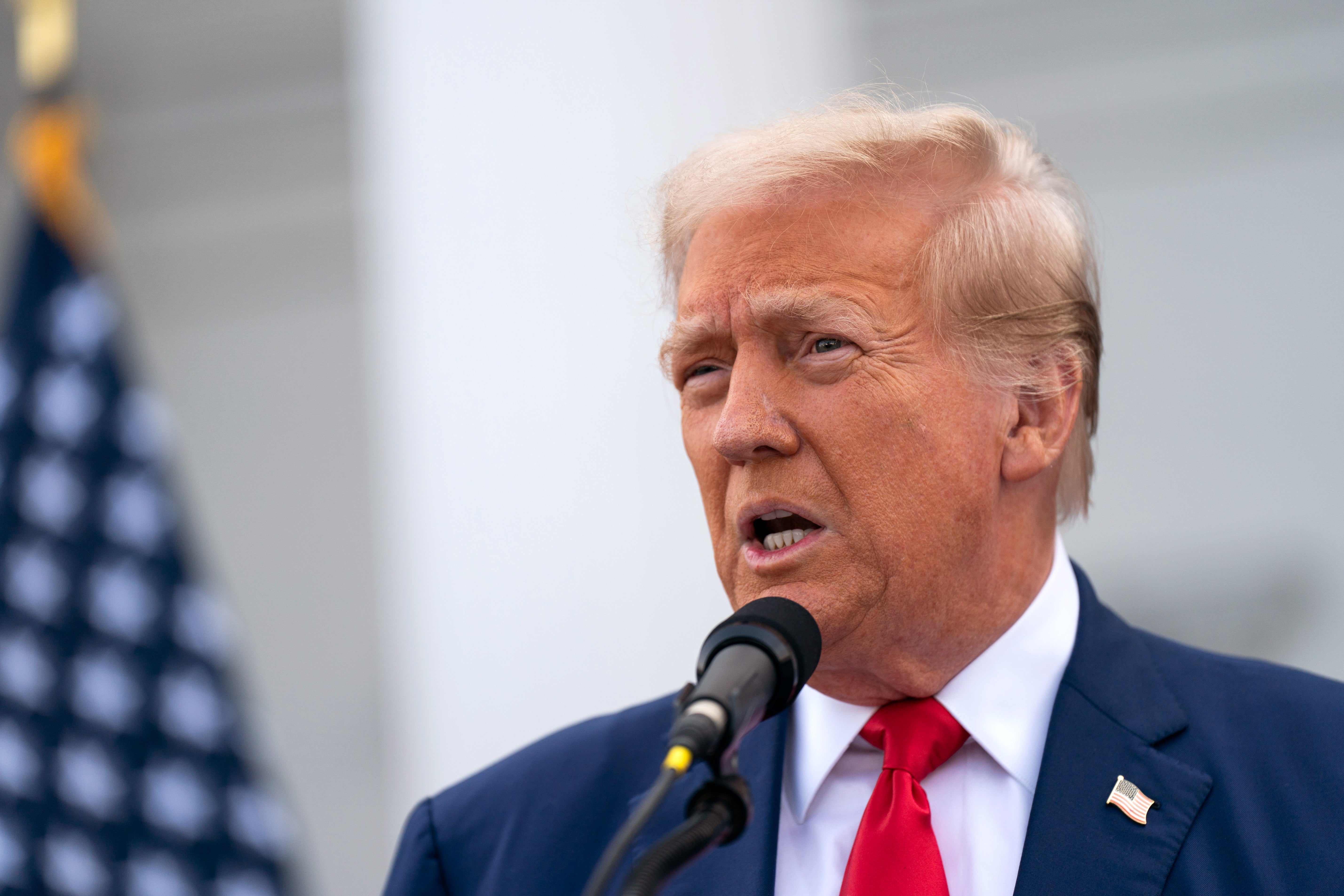
The 2017 bill cut the corporate tax rate from 35 to 21 percent. Trump has said that he would like to cut it further, down to 15 percent.
Trump told Bloomberg last month that he wants to make the cut because he likes “the simplicity.”
“I liked 20 percent better. I like 15 percent yet better, but I think that would be, you know, that’d be hard,” he said at the time.
Lowering costs
In his Wednesday speech, Trump said that he plans on signing an executive order on the first day of his second term telling all agency leaders and Cabinet Secretaries to “use every tool and authority at their disposal to defeat inflation and to bring consumer prices rapidly down.”
He added that he would “eliminate every single costly job-killing regulation.”
Increasing oil and gas production
Even as gas prices in the US change with variations in the global energy market, Trump has said that he hopes to lower prices by increasing US production of oil and gas.
“We’re going to drill, baby, drill. That’s going to bring down prices of everything,” the former president said on Thursday.
Addressing housing shortage
Trump has suggested using federal land to address the housing shortage. The Republican National Committee platform also states that they plan on promoting “homeownership” by using tax incentives and helping first-time buyers.
The platform also states that they plan to cut “unnecessary regulations” that raise the price of housing and to “reduce mortgage rates by slashing inflation.”






